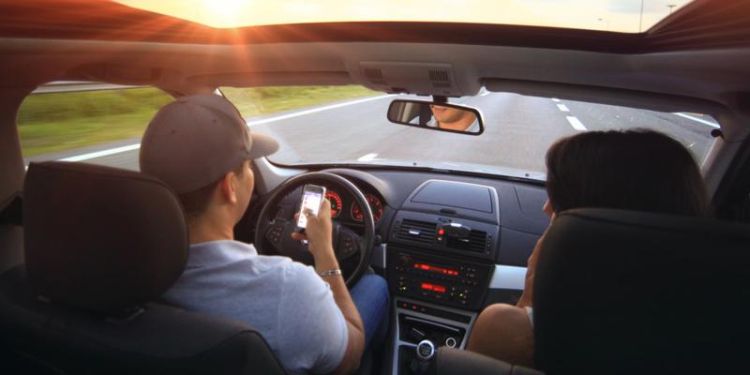All work and no play? How will we spend time in driverless cars?

New research from the Institute for Transport Studies uses chauffeured passengers to better understand whether travel time will be more “worthwhile” in fully automated vehicles.
The UK Department of Transport identified “creating more free time” as one of the key benefits from self-driving cars. Recent research suggested that the productivity benefits of using freed up driving time could be as much as 20 billion pounds to the UK economy.
Until now, there has been limited research exploring whether people would actually engage in “worthwhile” activities, such as working or studying, or even reading for leisure, when freed from the responsibility of driving. Dr Zia Wadud from the Institute for Transport Studies and ITS alumnus, Mr. Fuad Yasin Huda, currently Senior Lecturer at the East West University in Bangladesh, have surveyed drivers in multiple countries asking them about their intended activities and their usefulness in autonomous vehicles.
The study, published in the journal Proceedings of the Institution of Civil Engineers – Transport, compared the “actual” activities undertaken by chauffeured passengers with “intended” activities in autonomous vehicles and found an excellent correlation between these. The study also showed that the intention to use autonomous vehicles is directly correlated with how much more worthwhile the respondents’ time will be in these vehicles.
The Leeds researchers found that nearly every respondent showed a willingness to engage in various activities for at least some of their time while in a fully automated vehicle, although one-fourths would primarily engage in watching the roadway, which possibly indicates some lack of trust in these vehicles. Working or studying was the second most popular activity during business and commute trips. Respondents also intend to ‘switch off’ during the return trips – especially if they are business or commute trips – and engage in relaxed activities that does not require intense attention.
Dr Wadud, from the Institute for Transport Studies and the Director of the Centre for Integrated Energy Research at Leeds, said: “In these types of studies, asking people about what they would do is quite common – but there is no certainty that people would indeed do what they say they would do. What is novel in our study is using the real-life analogy of chauffeur driven cars to understand what people actually do now when freed from driving duties and that gives us some confidence on what they might do in autonomous vehicles. Our results therefore have at least some grounding in real-world evidence.”
“We also show that the time-use benefits have a direct bearing on the potential use of these vehicles. Our results thus have significant implications for value of time research, transport project appraisal and travel demand and energy use forecasting as well as future policies around these vehicles and even vehicle interior design.”
Further information
The paper: Fully automated vehicles: The use of travel time and its association with the intention to use is published in Proceedings of the Institution of Civil Engineers – Transport.
A non-technical summary for policymakers is available here.




